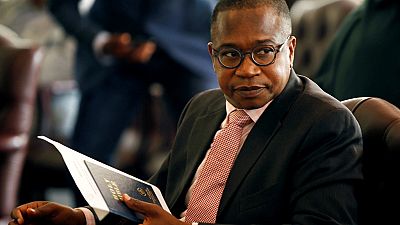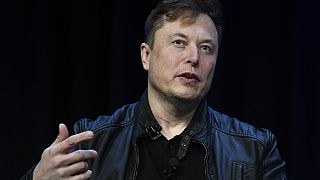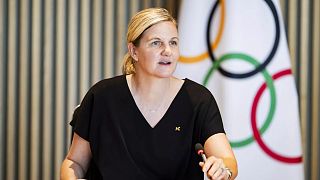Zimbabwe
Zimbabwe’s finance minister announced on Friday that government would cut public sector jobs to help stem ballooning expenditure.
Recently-appointed Mthuli Ncube said job cuts were among austerity measures needed to revive the moribund economy as the southern African country reels under a debt of $16.9 billion.
“We are going to do that (job cuts),” Ncube told journalists at a news conference while presenting a two-year fiscal policy plan titled “transitional stabilisation programme”.
“Trying to restructure your workforce is never easy. It’s painful, it’s emotional and can be a traumatic process but still necessary,” he said.
Ncube said the government, which has a workforce of more than 300,000, will target jobs held by workers due for retirement and “those who are not correctly positioned in their positions”, but he gave no figures.
The task ahead for Mnangagwa
He warned that the country’s fiscal deficit for the first half of the year, which stands at $1.4 billion, will top $2.7 billion by the end of 2018 if not controlled.
President Emmerson Mnangagwa, who was elected in a disputed election in July, has vowed to revive the economy.
Today’s ZimTrade Exporters Conference comes at a time when we are accelerating reforms to revitalise, modernise & industrialise our economy. Let government, industry & commerce continue to work together as we stride towards our shared vision of a better & more prosperous Zimbabwe pic.twitter.com/x9kyrE0onW
— President of Zimbabwe (@edmnangagwa) 4 octobre 2018
The incoming administration denounced corruption, botched land reforms and government policies that saw investors flee under former president Robert Mugabe, who ruled for nearly 30 years.
Ncube’s pledge
Earlier this week, Ncube forecast that Zimbabwe’s economy would grow by 6.3 percent this year, driven mainly by agriculture and mining in a bid to boost growth after the fall of Mugabe.
The minister pledged to implement key reforms to cut expenditure, improve income, tackle corruption and privatise some state enterprises to turn Zimbabwe into a middle-income economy by 2030.
In recent weeks, the country has been running out of essential medical drugs and supplies of fuel have dwindled because importers are unable to secure foreign currency to replenish stocks.
ALSO READ: Mnangagwa lays out plan, opposition insists on ‘illegitimacy’AFP






![Cyber Africa Forum highlights Benin's bold digital resilience [Business Africa]](https://static.euronews.com/articles/stories/09/33/14/38/320x180_cmsv2_675083a0-3d42-5b59-aba8-cbd15242e6d9-9331438.jpg)







Go to video
Zimbabwe court rejects opposition bid to block Gukurahundi massacre hearings
02:19
South African actor Embeth Davidtz makes directorial debut with Rhodesia-set drama
Go to video
To avoid conflicts with locals, Zimbabwe tracks elephants with GPS
Go to video
Putin hosts talks with African leaders on security
11:14
Power Play or Partnership? America’s Strategy in Africa [Business Africa]
Go to video
Harare City Council says bedbug infestation confined to only one locality